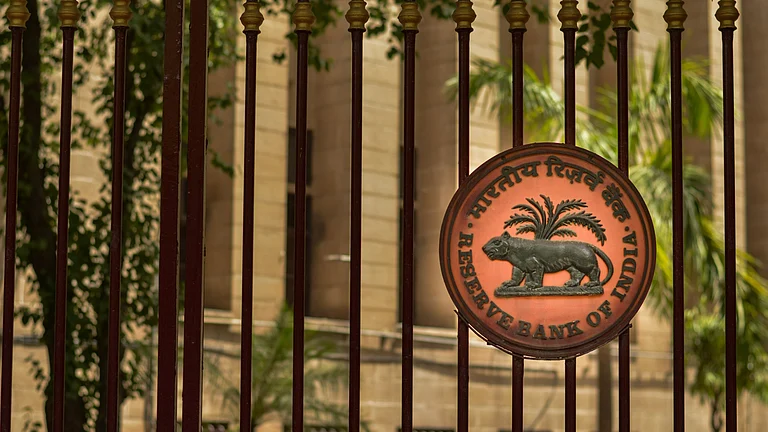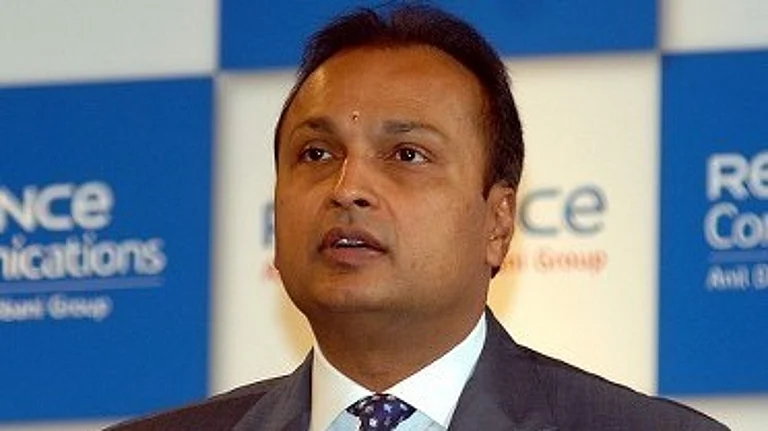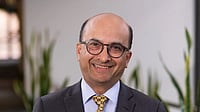
The Delhi High Court has allowed Priya Sachdev Kapur to submit Sunjay Kapur’s assets in a sealed cover.
However, Justice Jyoti Singh rejected her request to enforce NDAs for accessing the will.
Experts have said her NDA demand is “unusual,” noting that it could complicate verification of the estate.
A single-judge bench of the Delhi High Court, Justice Jyoti Singh, has accepted the request of Priya Sachdev Kapur, widow of Sunjay Kapur, to submit a list of assets belonging to her late industrialist husband and former Sona Comstar chairman, Sunjay Kapur, in a sealed cover. The hearing, filed by Kapur’s children from his previous marriage to actor Karisma Kapoor, also included a directive from Justice Jyoti Singh asking both sides not to discuss the case in the media.
However, the court denied Priya Sachdev Kapur’s request to bind all parties to a confidentiality club and sign a non-disclosure agreement (NDA) to access the will of Sunjay Kapur.
Experts have described the request as “unusual” and believe that it could further complicate matters regarding the authenticity of Sunjay Kapur’s will.
"Indian law does not generally mandate heirs to sign Non-Disclosure Agreements (NDAs) to access the assets of a deceased person," says B Shravanth Shanker, managing partner, B Shanker Advocates LLP, a law firm. He explains that the requirement in the Sunjay Kapur case is an exception driven by concerns over cybersecurity, media leaks and protection of sensitive financial information.
According to Purvi Mathur, managing partner, KP Associates, Advocates & Consultants, a law firm, the demand is likely driven by the family’s internal arrangements and the sensitivities of corporate interests involved.
"Ordinarily, transparency with Class I heirs is the norm, and courts can direct disclosure where disputes arise," she said, adding that while confidentiality arrangements may protect sensitive business information, they could limit an heir’s ability to independently verify the extent of the estate.
"This, in turn, may complicate or delay future claims, particularly if disputes arise over undisclosed or undervalued assets," Mathur added.
Justice Singh also agreed when she asked lawyers representing the widow to justify their demand on Thursday. She observed that this could be "problematic", as beneficiaries of the estate have the right to question the assets disclosed, just as in any other case.
The court also questioned how replication and objections could proceed if the details were sealed.
While the demand for NDAs and confidentiality has been rejected, other complications in the case remain, including a key objection raised by Karisma Kapoor's children, Samaira Kapur and Kiaan Raj Kapur, over alleged will fabrications.
The next hearing in the case is scheduled for October 9.
How the Sona Comstar Succession Unfolded
According to legal experts, the complications stem both from secrecy around the will and the layering of trusts and corporate holdings.
This, "coupled with rival claims of different heirs," has dragged the matter on for months after the untimely death of Sunjay Kapur on June 12, says Raheel Patel, partner, Gandhi Law Associates, a law firm.
According to Mathur, the matter underscores the critical importance of structured succession planning.
"Under Indian law, succession is governed by statutory frameworks such as the Indian Succession Act, 1925, or personal laws applicable to the deceased. However, where complex corporate holdings and cross-border assets are involved, reliance on a bare will often proves inadequate," she adds.
The succession dispute became public within a couple of weeks of Kapur's death as his auto-component firm moved to appoint a representative of the promoter group. Sunjay's mother, Rani Kapur, in a letter to the board, alleged that her daughter-in-law Priya, but without naming her, was trying "to wrest control and usurp the family legacy."
She asked the board not to take up Priya Kapur's appointment during the annual general meeting on June 25, as it was without her consent. The board went ahead with the appointment regardless.
Sona Comstar later told the exchanges that Rani Kapur was not a shareholder of the company and reportedly sent her a cease-and-desist notice to stop making statements the company considers false and damaging.
Meanwhile, Priya Sachdev Kapur was appointed as non-executive director of Sona Comstar. She represents Aureus Investment, the promoter holding company of Sona Comstar, with 28% shares. Aureus Investment, which currently has only one director, Priya, is owned by the RK Family Trust. At the current share price of Sona Comstar, the stake is valued at ₹7,136.54 crore (share price ₹409).
Rani Kapur, who briefly served as the chairperson of Sona Comstar after her founder husband Surinder Kapur's death in 2015, has since said she would go to court to claim her rights and raise suspicions over the circumstances of her son’s death.
Meanwhile, another dispute surfaced when Priya shared Sunjay Kapur’s contested will with his former wife, Karisma Kapoor. According to a petition filed by Kapoor on behalf of her children (one of whom is a minor), they were initially told there was no will. In a case file earlier this month, Kapoor said that after Sunjay’s unexpected death in June, she and her children met Priya in England from June 14 to 17, where Priya claimed he had left no will and his assets were held under the RK Family Trust.
They met again on July 30 in Delhi with family members, where a will dated March 21 was presented, leaving Sunjay’s personal estate entirely to Priya. Shradha Suri Marwah, managing director of Subros, an automotive-components company, and executor of Sunjay’s estate, was also present at the meeting.
In their petition to the Delhi High Court, Karisma and her children questioned the will's authenticity, noting Sunjay never mentioned such a will despite regular contact with them. Karisma also claimed she also wrote to Marwah seeking clarification.
Meanwhile, in August, Priya and her son Azarias were recorded as beneficiaries of Aureus Investment in a filing with the Ministry of Corporate Affairs. In September, ownership forms for Samaira and Kiaan were also submitted.
Samaira and Kiaan are not only seeking a portion of Sunjay's holding in Sona Comstar, but are also claiming a share of his private wealth, which Forbes estimates at $1.2bn, including immovable properties, bank accounts and fixed deposits. In subsequent hearings on the matter, their lawyers have alleged that certain bank accounts are being depleted without their knowledge.
Rani Kapur's lawyers have claimed that Sona Comstar shares worth ₹500 crore were sold to a Singapore-based entity without her knowledge. She also alleged that her rights under the RK trust have diminished following Priya Kapur’s marriage.
Besides Priya Kapur and Rani Kapur, the case names the will’s executor, Shradha Suri Marwah, and two former directors of Aureus Investments, Dinesh Agarwal and Nitin Sharma. The latter two are accused of allegedly colluding with Priya Kapur to transfer personal assets in her favour.
Questions over the authenticity of wills have also been legally scrutinised. In a recent case, the Delhi High Court upheld the validity of the late DK Jain’s will, founder of the Luxor Group. The will had been challenged in 2014 by his daughter, Priya Jain, who claimed it was fabricated to favour her mother, allegedly under the influence of Pooja Jain.
The court ruled that she couldn't establish any suspicious circumstances.
A similar battle is going on among the promoters of Oberoi Group. Last year, Anastasia Oberoi, daughter of the late PRS Oberoi, approached the Delhi High Court, alleging that her stepbrother Vikramajit, stepsister Natasha and cousin Arjun were obstructing the execution of her father’s will. The dispute centres around two wills, with Anastasia presenting the October 25, 2021, will and an August 27, 2022, codicil as PRS Oberoi’s final testament, securing her share of assets and trusts.
Natasha now also supports the 2021 will, stating that she and Anastasia are the main beneficiaries of PRS Oberoi’s estate, which includes substantial company shares.
In the Kapurs’ case, B Shanker Advocates LLP’s Shanker says that suspicious circumstances such as the delayed and hasty production of the will at a family meeting, the non-registration of the will and exclusion of natural heirs without sufficient reasons cast doubts on the veracity of the testamentary document.
"The delayed, non-registered will created suspicion, especially since it excluded natural heirs without clear justification. The vast estate includes personal assets, significant business interests and trusts, such as the Sona Group and Sona Comstar with cross-border implications. Recent substantial asset transfers, including ₹1,900 crore, moved through trusts shortly before litigation began, have raised allegations of manipulation to exclude certain family members. These intertwined factors complicate asset tracing and divide family factions, making judicial resolution challenging," he says.
He adds that exclusion of heirs must be supported by valid reasons, with unambiguous instructions for asset distribution to avoid interpretative disputes.
"Transparency about assets and succession intentions reduces familial discord post-death. Additionally, using trusts or other juristic entities aids professional estate management, creditor protection and controlled wealth transfer, especially valuable for minor heirs or complex business interests," he explains.
Other experts support this.
"High-net-worth individuals should aim to prepare a well-structured will for distribution of their self-acquired assets (both movable and immovable) with each asset identified and properly assigned among the beneficiaries identified," says Suchitra Chitale, managing partner, Chitale & Chitale Partners, Advocates and Legal Consultants.
She also supports the creation of a family trust for the benefit of the heirs, but adds that professional trustees may be appointed to manage it.
According to Madhavan Srivatsan, senior partner, Emerald Law Offices, the basic steps include registering wills and testaments with proper witnesses and an executor, and ensuring that the division of the property is made clear. He adds that "if possible, provide reasons for the same, though it is not mandatory."


































